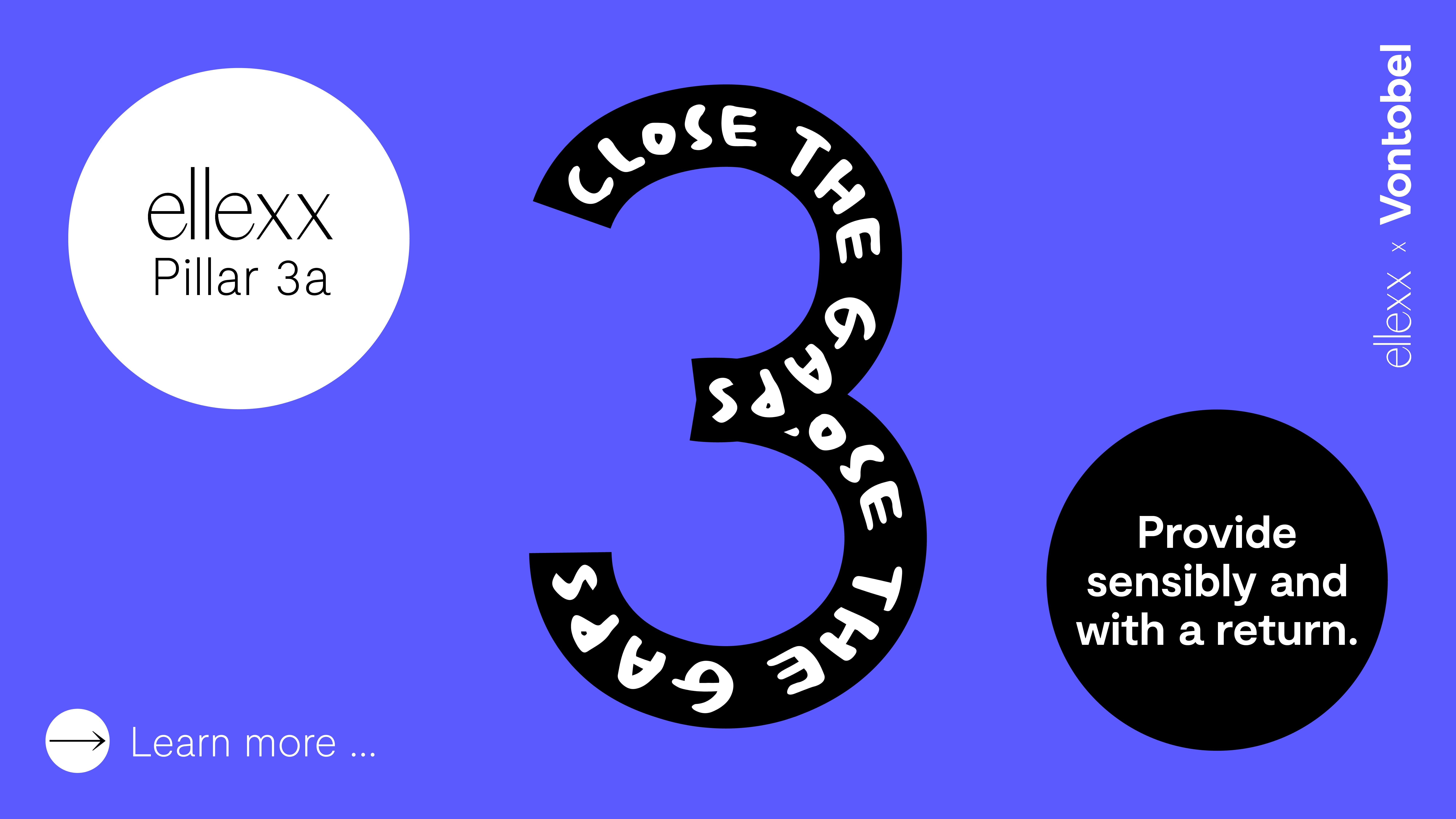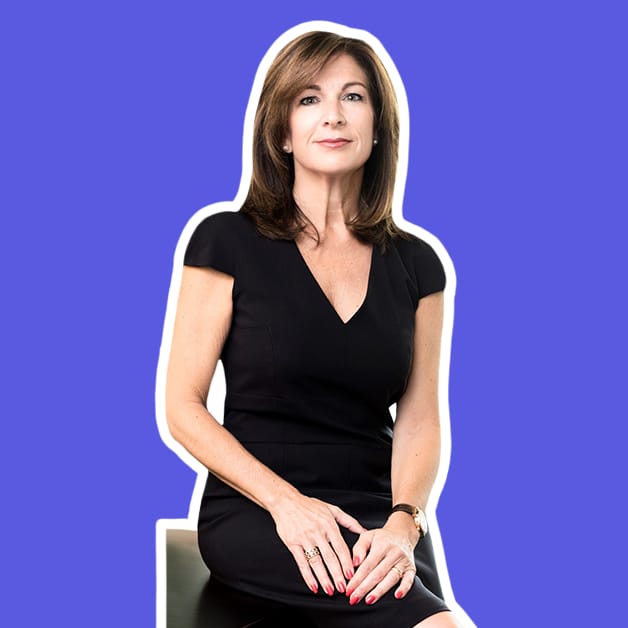Sylvia Locher is the president of Pro Single Switzerland. In our Money Talk, she explains the costs of living for single people and how they are financially disadvantaged by our system.
What is your relationship with money?
It is actually relatively simple: you need money to live, because life costs money. Therefore, I try to manage my money as best as I can. I am very frugal. I have always been. I have lived alone for decades and have never relied on anyone else to take care of me. I simply never wanted to be dependent on anyone – not even financially.
Where does this desire for financial independence come from?
I’m not exactly sure. For me, it was always clear: the responsibility of every person is to take care of themselves and not rely on someone else to do it – for example, a husband.
You mainly live on your pension. How do you manage financially?
My pension is not very high. This is partly because occupational pensions were not mandatory at the beginning of my working life. I lost about ten years of pension contributions during my 46 years of working. Additionally, I worked much less during my retraining. But I have always saved and now get by well. I never lived extravagantly and still don't today.
What are your biggest expenses as someone living alone?
There are quite a few things that weigh heavily because you can't share the costs. The most expensive is certainly housing. The prices for small apartments have risen in recent years. Food also takes up a large part of the expenses. You spend almost as much money on groceries for one person as for two. This is partly because there are no small packages or only bulk discounts.
You are the president of Pro Single Switzerland. According to your definition, who is considered single?
As an association, we represent the interests of all people who live alone. This includes singles, divorced, or widowed individuals. We also have members who have a partner but do not live together. Depending on the type of single person you are, you face different problems and financial disadvantages in our system.
Where are people living alone disadvantaged?
Firstly, in taxes, and secondly, in social security, particularly pensions and inheritance taxes.
Let’s start with taxes.
When it comes to annual taxes, everyone who is not married and lives alone faces the same disadvantages – whether divorced, widowed, or single. Those who live alone are taxed at a higher rate than married people.
But we always hear about the marriage penalty?
Yes, but this only affects some couples, namely those who earn about the same and very well. For example, in federal taxes, couples with children have an advantage: according to federal surveys, nearly half of couples with minor children in Switzerland pay no federal taxes, mostly due to deductions they can claim. So, federal taxes are largely financed by those without children. Another point is inheritance tax.
What about that?
Here too, people living alone are disadvantaged: if you have children or are married, you can pass on your money tax-free to your children or spouse. In some cantons, even cohabiting partners are exempt from inheritance tax. Those without a partner and children cannot pass on their money tax-free. The state benefits again from singles in the form of inheritance taxes when they die. And while we're on the topic of inheritance: there's also an unfairness with pension funds.
Because you can’t pass on your pension fund money to someone?
Exactly. In the second pillar, you can insure your life partner today. If a partner dies, the surviving partner receives a survivor's pension from the second pillar. As a single person, I can't trigger a survivor's pension for anyone. Even though I worked for it and it was deducted from my salary, most of it stays with the pension fund if I die prematurely. An estimated half a billion francs stay with the pension funds every year because of this. This figure is admittedly a few years old.
And what about other aspects of retirement provision?
In social security, single people also finance couples and families. For example, I have always worked and paid into the AHV, just like a married family man of my age. If this family man dies, his wife receives a widow's pension. And that's even if she hardly paid into the AHV. In general, all those who were once married benefit from the AHV. The numbers show this too.
Can you be more specific?
Federal figures show that only about 12 percent of single men and women receive a full AHV pension. For widows, it's almost 40 percent. Even if the woman never worked. The reason is that for the calculation of the pension, the partner's income is also considered, along with one's own income. There are also child-raising credits if there are children. If a woman becomes a widow at retirement age, she also receives a lifetime 20 percent bonus on her AHV pension. As a single woman, you work your whole life and don't get this bonus.
According to the principle of solidarity, this is how the AHV is set up. Those who have more pay for those who have less. The younger generation, for example, pays for the older generation. If there were only childless singles, the system would also collapse.
I understand that. But what bothers me is that the benefits are so unfairly distributed. In married couples, where only one person is working, the other benefits. Couples have significantly greater entitlement to benefits than those living alone. This, in my opinion, encourages many women to remain in this passive housewife role. Sometimes even after a divorce or as a widow. But it should be possible for these women to re-enter the workforce. And as for the argument about age: why should age matter for widowed women? Unmarried people also work until 65.
Of course, it is possible to re-enter the workforce. Provided the job market accepts these women after ten or fifteen years of interruption.
The job market is more or less accessible depending on the industry. And as a re-entrant, you might have to take what is available. It's not as if all singles are pursuing their dream careers. Many have jobs that don't meet their expectations but have no other choice because they are alone and cannot rely on anyone else financially, unlike many married women. They can evaluate whether it is worth working or if taxes are too high and stress is too great, and they prefer to rely on their husband.
With this attitude, you are ignoring part of the reality. The fact is that childcare in Switzerland is so expensive that it often doesn't pay for both partners to work full-time. The same applies to taxes. We live in a system designed for a single breadwinner model.
A single person can never ask whether it's worth working. They have to earn their living. Period. But I have nothing against women working less or even staying at home full-time to care for children for a while. But: a working life lasts about 45 years. You have small children for a few years. So there is plenty of time to return to work. By the way, who says that it always has to be the women who care for the children?
In principle, no one. But here too, our system sets the framework: men earn more than women. Women are promoted or hired less after a certain age. Men have fewer opportunities to work part-time. This pushes men into the provider role and women into the housewife role.
I am aware of that, but things are changing. Fortunately. I advocate for couples to talk about money: if a couple decides that the woman stays home for a long time and she thereby has financial disadvantages, then her partner should compensate for these. What I don't like is when the state subsidizes childcare with a broad brush. Because then, and this brings us back full circle, it is indirectly the singles who pay the price – through taxes or other contributions.
What solutions do you see for financially improving the situation of people living alone?
Our system cannot be easily reformed. However, it is important to me and our members that we have the same rights as married people or those in partnerships. We don't want advantages, but we don't want the excessive forced solidarity that exists today. A first step in this direction would be to investigate what singles actually subsidize with their money. This is another problem.
Lack of data?
Exactly. It is simply not recorded how much money is redistributed from childless and single individuals. Neither the federal government nor other stakeholders such as social security providers are interested in collecting and disclosing these figures.
We’ve talked a lot about the disadvantages of living alone. Where do you see the financial advantages of this lifestyle?
The per capita expenses are higher, but overall, the expenses for one person are lower than for an entire family. Moreover, you can always decide freely how to spend your money, and there are no mandatory family expenses. This is, in my opinion, the biggest advantage and also a great deal of freedom.





